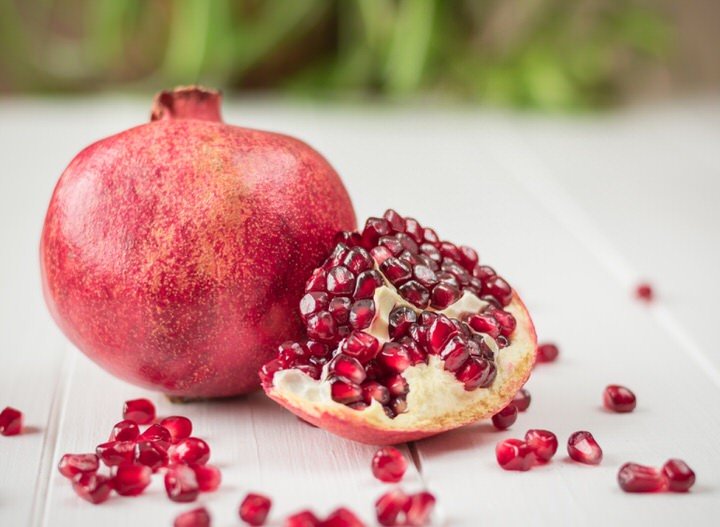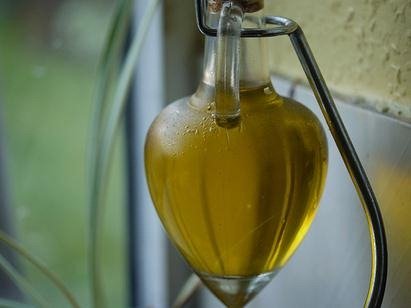Pomegranates have very interesting properties and benefits, thanks to their nutritional contribution. Discover its qualities and why they are so good for your health.

The pomegranate is the fruit of the pomegranate, an extremely common tree in our country (Spain). It is characterized by being a fruit with a hard rind in which we find a large number of grains of a bright red color.
This crust offers a great variety of brown and red colors, although the most remarkable ones precisely because of their color do not tend to be the most ripe when it comes to being eaten.
It not only stands out for having a refreshing taste thanks to the fact that it contains a large amount of water, so it is highly recommended in hot times such as summer.
But what are the properties of the pomegranate? What are the most important benefits? Let’s find out.
What are pomegranates?
The pomegranate is one of those wonderful fruits that are characterized because we can only enjoy it during some months of the year; In other words, we are faced with an exquisite and delicious seasonal fruit. And when is pomegranate season? Mainly in autumn, like other equally wonderful fruits of this beautiful season, as for example it could be the case of grapefruit or persimmon.
In the particular case of this fruit, we are faced with a fruit from the pomegranate, a small tree native to South Asia, known by the name of Punica granatum, and belonging to the Lythraceae family.
It is a fruit whose external appearance is really characteristic, since it has a kind of hard peel or skin, inside which when we split it we find those known as pomegranate seeds, red or slightly pinkish in color, and with a sweet taste at first. And slightly acidic in the end.
Properties of the most important pomegranates
High nutritional content
The Granada is rich in many nutrients, among which several vitamins of the B group (especially Riboflavin, also known as B2), vitamin C, and beta – carotene (as you know, is a precursor of vitamin A).
It also stands out for the amount of minerals it contains, such as calcium, iron or manganese.
Nutritional value of pomegranates
100 grams of pomegranates provide:
| Calories | 34 kcal | Vitamin B6 | 0.11 mg |
| Carbohydrates | 7.5 g | Vitamin C | 5.7 mg |
| Protein | 0.7 g | Calcium | 8 mg |
| Fats | 0.1 g | Iron | 0.6 mg |
| Fiber | 0.2 g | Magnesium | 3 mg |
| Water | 91.5 g | Zinc | 0.3 mg |
| Vitamin A | 3.5 µg | Sodium | 5 mg |
| Vitamin B1 | 0.02 mg | Potassium | 275 mg |
| Vitamin B2 | 0.02 mg | Match | 15 mg |
Excellent for purifying the body
Regarding the properties of the pomegranate, it is surprising for its great purifying and diuretic power, making it ideal in cases of fluid retention and abdominal swelling.
In addition, due to their water content, they are very useful when it comes to purifying and detoxifying our body, which joins their contribution in natural antioxidants, so that they also help prevent both cancer and degenerative diseases, by reducing the action of free radicals and protect cells.
Useful against constipation
Its pulp is capable of helping to correct constipation, thanks to its fiber content, so it is a very useful fruit to improve intestinal transit, while pomegranate juice fights intestinal parasites.
And how to make a pomegranate juice? It is extremely simple: you only need 2 grenades, cut them in half and with the help of a juicer proceed to squeeze them well. Ready!
They provide energy
Regarding the nutritional values of pomegranates, we must indicate that it contains carbohydrates, so it is easily transformed into useful energy for our body.
Pomegranate benefits, in summary
In summary, we can indicate below the benefits of grenades, briefly:
- Rich in vitamins: vitamin C, B2 and beta carotene.
- Rich in minerals: iron, manganese and calcium.
- Abundant in carbohydrates.
- Important purifying and diuretic effect.
- Helps prevent, treat and overcome constipation.
- Fight intestinal parasites.































